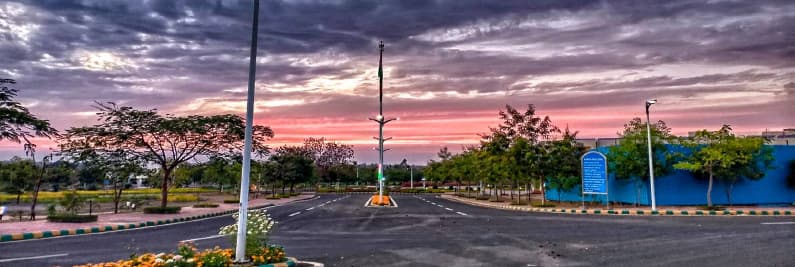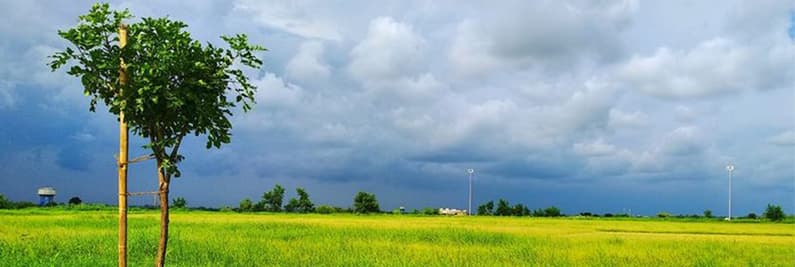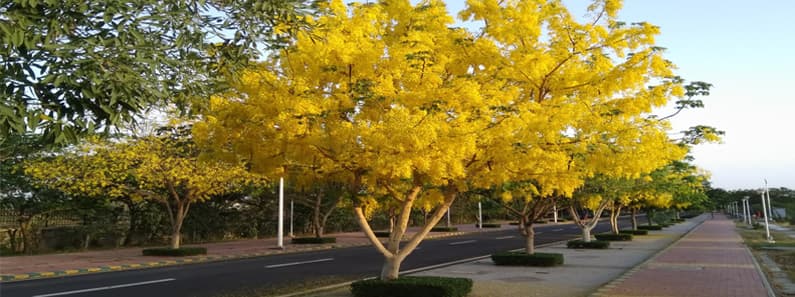IISER Bhopal researchers produce magnetic porous carbon nanoparticles

IISER Bhopal researchers have successfully produced magnetic nanoparticles, which are minuscule particles approximately one hundred thousand times smaller than the width of a human hair.
These nanoparticles have been engineered for multiple applications such as heat and light-induced removal of salt from seawater, the extraction of potable water from wastewater contaminated with dyes and deicing and anti-icing processes, say IISER Bhopal researchers.


To address this, desalination, a process that can provide local water sources for about 40% of coastal communities, is crucial, say IISER Bhopal researchers.
Methods
Desalination methods that produce usable water from seawater typically involve processes that need a lot of heat, like distillation or membrane-based techniques like reverse osmosis, say IISER Bhopal researchers.
However, these methods often require expensive equipment, large setups, and substantial energy consumption.

A more sustainable alternative is photothermal (light+heat) –assisted desalination, which harnesses renewable solar energy, say IISER Bhopal researchers.
Magnetic nanoparticles
The creation of magnetic nanoparticles with diverse applications, from efficient desalination processes to dye removal and de-icing represents a significant step towards sustainable and accessible water resources.
Such advancements in science offer hope for a future where clean and safe water is more readily available to communities worldwide, say IISER Bhopal researchers.

Who led IISER Bhopal researchers?
IISER Bhopal researchers were led by Dr. Sankar Chakma, Assistant Professor, Department of Chemical Engineering, IISER Bhopal.
The findings of this research group have been published in the reputed peer-reviewed journal American Chemical Society – EST Engineering. The paper was co-authored by Vishrant Kumar, Abhinav Chandel, Prachi Upadhyay, and Dr Sankar Chakma.
The paper may be accessed at https://doi.org/10.1021/acsestengg.3c00297


This is because of improved mass transfer through a porous medium, like transpiration and capillary action, aiding faster upward movement of water molecules, said Assistant Prof Sankar, who led IISER Bhopal researchers.
Technical aspects
Discussing the technical aspects of their experiments, Dr. Sankar Chakma, who led IISER Bhopal researchers said, “Porous magnetic carbon materials are excellent for photothermal applications because they interact with light waves in unique ways.
‘The interaction is more effective with highly porous materials, as they offer additional pathways for waves to bounce around and be absorbed.’

The process involved saturating cotton with nickel salt and mustard oil, and igniting it using a lighter, resulting in the formation of these specialized MNPs.
The synthesized MNP was assessed for its photothermal activities for three purposes – Photothermal Desalination of Simulated Seawater, Photothermal Separation of Dye Molecules from Effluent and De-icing applications, say IISER Bhopal researchers.
The study further showed that the nanoparticles could completely remove dye molecules from water when exposed to light and heat.
Furthermore, these nanoparticles absorb Near-Infrared radiation from their environment, leading to effective de-icing properties as they heat up, say IISER Bhopal researchers.
About IISER Bhopal
Established by the Ministry of Education (then Ministry of Human Resource & Development), Government of India, in 2008, IISER Bhopal is the youngest of the first five IISERs. ‘
In a decade, the Institute has received several distinctions, duly carving out its own position in the national and international arena.
With a vision to provide high-quality education to students and contribute to society through its research, IISER Bhopal is the first IISER to have been declared by the Ministry of Education for project completion.
S Vishnu Sharmaa now works with collegechalo.com in the news team. His work involves writing articles related to the education sector in India with a keen focus on higher education issues. Journalism has always been a passion for him. He has more than 10 years of enriching experience with various media organizations like Eenadu, Webdunia, News Today, Infodea. He also has a strong interest in writing about defence and railway related issues.






